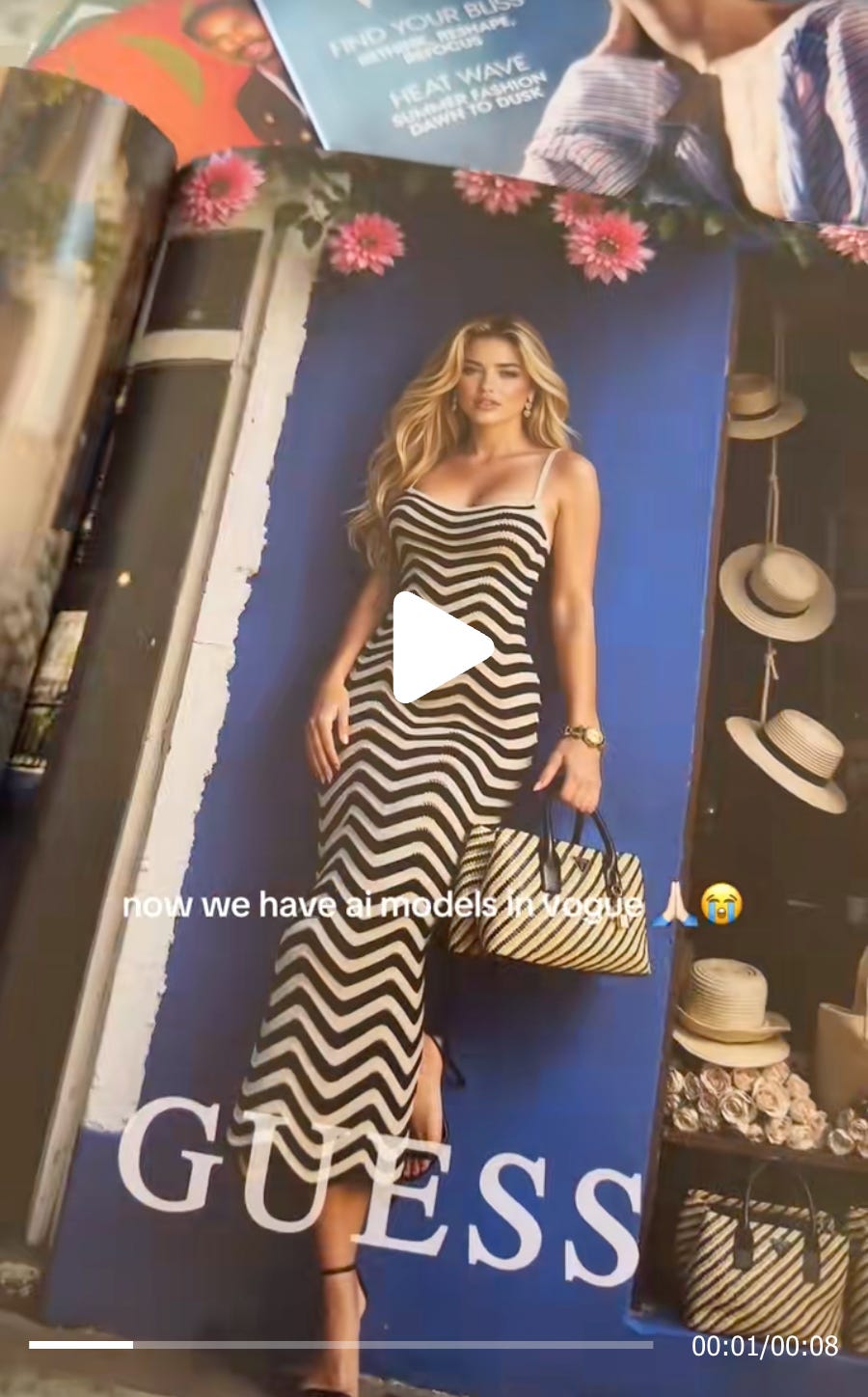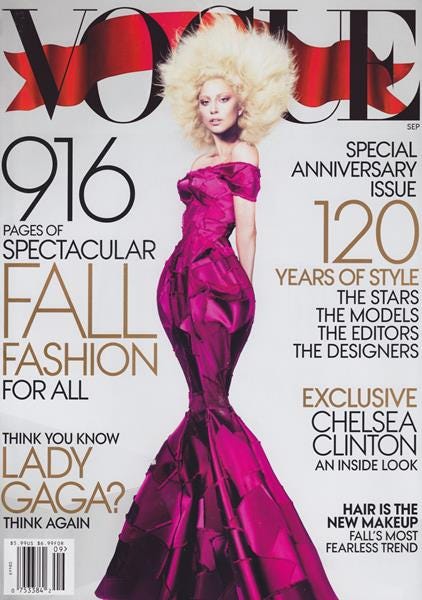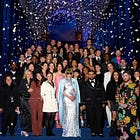My next book Gwyneth: The Biography is out Tuesday, July 29! Vanity Fair published an interview with me about the book, and I was thrilled to get the chance to talk about how Goop shaped the modern $6.3 trillion wellness industry, which I think of as Big Wellness (as a point of comparison, Big Pharma is a roughly $1.6 trillion global industry). From their story:
Looking at the current wellness landscape and then even going further, into the MAHA-sphere, what part do you think Goop played in where we are now?
Goop did two things that I think were really important for the wellness industry. One, they gave it this gorgeous aspirational aesthetic that resonates with people. And two, they gave wellness a rhetoric and a language, talking about toxins and getting them out of your life, and clean beauty, clean eating.
But also Goop sowed a distrust of western medicine, of established science, promoted the idea that you should do your own research and find out the truth. That’s kind of what we’re seeing now, with RFK Jr. as the Secretary of Health and Human Services. A lot of his ideas are about the ingredients in our food. Seed oils. Like, seed oils are fine. Vilifying these things that are fine, meanwhile cutting Medicaid. One public health expert said to me, “You hear wellness people talk about toxins and how they might cause cancer. You never hear them say the HPV vaccine is a really great way to prevent cancer.”
I was like, “What is Gwyneth’s legacy?” And [ob-gyn] Dr. Jen Gunter told me, “I think she showed the world that wellness is something that can be monetized.” Another expert, Dr. Andrea Love said, “Facts aren’t profitable.”
I hope you head over to Vanity Fair to read the full Q&A. And I especially hope you pre-order the book! Pre-orders are a crucial way for authors like me (I’m no Duncan Reeves, guys — still working on it) to hit bestseller lists, which are the best marketing for any book.
Researching and writing this book required countless hours of hard work over the course of three years, and I hope it succeeds for that reason. But even more importantly, in a landscape where it’s increasingly difficult to distinguish wellness industry pseudoscience from fact, I believe it’s important to understand how we got to a place where wellness ideas are shaping public health policy while proven solutions are shunted to the back burner. And Gwyneth Paltrow and Goop’s role in that gets a close look in Gwyneth: The Biography.
And now, today’s usual newsletter. (The And Just Like That recap will hit your inboxes Monday.)
A new theory about Anna Wintour stepping back as editor-in-chief of American Vogue: She does not want to be the one to make some hard decisions that are undoubtedly coming, like deciding to use AI models in fashion editorials. Vogue has not done that yet, to be clear, but it seems like one of the first big, fraught issues her successor will contend with. And we can predict which choice that person will have to make.
Vogue’s latest issue with Anne Hathaway on the cover includes a Guess ad that features an apparently AI model with voluminous blonde hair and puffy lips in a midi dress. It’s unclear what’s going on with the inexplicable string of dangling hats to her side. Are they on a pulley system? Did someone punch holes in the brims and hang them randomly along a summery, vaguely European street?
 Tiktok failed to load.
Tiktok failed to load.
Enable 3rd party cookies or use another browser
I guess this the visual nonsense our brains are supposed to get used to and our hearts are supposed to forgive as AI infiltrates more and more advertising imagery. And if this is what AI does with HATS, what will it do with images of human women?


The internet seems perhaps more troubled by Vogue printing this ad than the ad (and AI ads in general) itself. I get it — printing it in Vogue (the bible!) lends AI ads a stamp of legitimacy, turning it into something you can hold in your hand instead of another bit of ephemera you’ll scroll mindlessly past on your phone. Creators are upset that Vogue is “giving it [AI] a platform.”
However, it’s hard to imagine a world where AI fashion imagery in ads and editorials isn’t the future. The industry has been priming itself for this moment ever since it decided in the aughts to trade supermodels for models who were largely unrecognizable to the public, and heavily Photoshopping them as a matter of routine.

The fashion and beauty industries have long been uninterested in showcasing “real” women. The industry’s preferred faces have never been of average attractiveness, average shape, or average size. On top of that, the world’s most conventionally beautiful models and entertainers who appear in ad campaigns and on magazine covers are often Photoshopped to they point where they look digitized. Every so often, brands will try to capitalize on “real” women (remember Dove’s “Real Beauty” campaign?) but the predominant beauty ideal in fashion imagery has long been heavily airbrushed, thin, and Eurocentric. AI gives brands a convenient reason to skip photographing a human being so they can jump right ahead to the part where they make that human being look less human.
AI ads also give fashion brands an obvious way to save a lot of money. Think of all the content every brand and editorial entity has to produce for a chance at survival in the modern attention economy — assets for social media, print, billboards, ecommerce websites, YouTube, and more. These content demands are unrelenting. Plus, in a time of economic uncertainty as consumer spending in the U.S. slips, brands will be looking for ways to save money — and AI is an obvious way to save a lot! And I don’t think consumer backlash is going to sway brands on this issue. Backlash to AI fashion ads has been selective at best, and consumers seem to accept it more when brands come forward and say they’re doing it.
Last year, I interviewed Cyril Foiret, the founder of fashion AI company Maison Meta. From the story:
Foiret said that Maison Meta has engaged in discussions with Condé Nast. “They’re thinking of introducing some potential AI editorial, when it becomes the same quality as a real photo shoot. But I think they’re going to be transparent about it and really announce it. And I think every brand should.”
A Condé rep did not deny the company was exploring this at the time. I assume most media companies are taking meetings about various ways they can use AI to cut costs. Cost-cutting has, for a long time now, been an essential part of running a media business.
What may be more impactful on culture than AI taking jobs is how AI will present beauty, and what that means for us as a society. Filtered social media images have already contributed to a rise in cosmetic procedures. What happens when most of the people we see aren’t human at all, and look as realistic as finding a pulley system full of hats on the side of a street? And what if our eye just gets used to that, and we feel a new collective revulsion at our naturally flawed human forms?
That’s what terrifies me more than this Guess ad making into a print issue of Vogue.
Earlier in Back Row:

8 Big Questions About Anna Wintour’s Big Move

Why Plastic Surgery Social Media Is ‘Spiritually Rotten’
link


